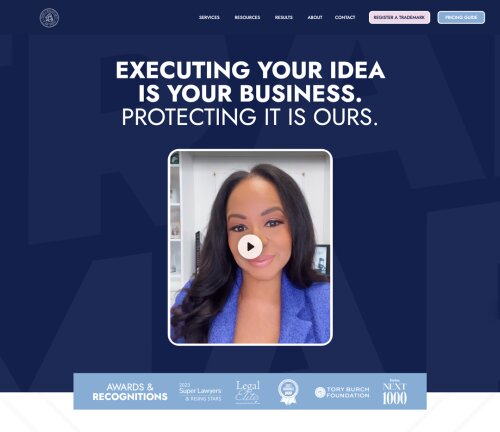Best Health Care Lawyers in North Carolina
Share your needs with us, get contacted by law firms.
Free. Takes 2 min.
Or refine your search by selecting a city:
List of the best lawyers in North Carolina, United States
About Health Care Law in North Carolina, United States
Health care law in North Carolina refers to the set of federal and state regulations that govern medical care, patient rights, health insurance, and the operations of healthcare providers and facilities across the state. This complex legal field touches the lives of patients, doctors, nurses, hospitals, and insurers. North Carolina’s health care system must comply not only with federal rules such as the Affordable Care Act, HIPAA (Health Insurance Portability and Accountability Act), and Medicare but also with state-specific laws related to medical practice, facility licensing, public health requirements, and patient protections.
North Carolina is home to many renowned health care institutions, leading research hospitals, and a large network of health care professionals. Navigating health care legal issues in the state often involves understanding both the specifics of state law and how these laws interact with broader federal mandates.
Why You May Need a Lawyer
There are many situations where individuals or organizations in North Carolina may need legal guidance concerning health care issues. Some common examples include:
- Medical malpractice claims - If you believe you or a loved one suffered harm as a result of medical negligence, a lawyer can help assess your case and represent your interests.
- Health care fraud and billing disputes - Both patients and providers may need legal assistance with questions of insurance coverage, denied claims, overbilling, or accusations of fraud.
- Patient rights and privacy concerns - Legal questions may arise regarding the confidentiality of medical records, informed consent, or the right to refuse treatment.
- Long-term care and nursing home issues - Legal issues may involve the rights of residents, allegations of abuse or neglect, and disputes over payment or guardianship.
- Health care provider licensing and discipline - Medical professionals may require legal help to respond to licensing board investigations or disciplinary actions.
- End-of-life decisions and advance directives - Families and health care agents may need advice about living wills, health care powers of attorney, or do-not-resuscitate orders.
- Discrimination, access, and disability rights - Legal support may be needed if there are concerns about unequal treatment or failure to provide accessible care.
Local Laws Overview
In North Carolina, health care law is shaped by a combination of federal regulations and state statutes. Some key aspects of local law include:
- Certificate of Need (CON) law - North Carolina law requires health care providers to obtain state approval before building new health facilities or expanding certain services, intended to control costs and ensure quality of care.
- Medical malpractice regulations - There are specific procedures for filing malpractice lawsuits, including pre-lawsuit mediation requirements and damages caps on non-economic losses.
- Advance directives law - State law allows individuals to create living wills and appoint health care agents through legally accepted documents.
- Mental health law - North Carolina has statutes governing involuntary commitment, patient rights, and the operation of mental health facilities.
- Patient confidentiality - State law reinforces federal HIPAA rules regarding the privacy of medical information, with additional protections in some cases.
- Provider licensing requirements - The North Carolina Medical Board and other licensing agencies oversee the licensing, continuing education, and discipline of health care professionals.
- Immunizations and public health - The state mandates certain vaccines for entry to schools, and has specific policies for infectious disease reporting and control.
Frequently Asked Questions
What should I do if I suspect medical malpractice?
Consult a qualified health care lawyer as soon as possible. It is important to gather all medical records and any evidence of harm. There are strict time limits, known as statutes of limitation, for filing a claim in North Carolina.
How can I get my medical records in North Carolina?
You have the legal right to access your own medical records under both federal HIPAA rules and state law. Contact your provider’s records department and complete the necessary authorization forms.
What is a Certificate of Need and does it affect patient care?
A Certificate of Need is a state approval required before building or expanding certain health care facilities. While intended to control costs and ensure efficient care, it can affect the availability of services in your area.
What are my rights regarding end-of-life medical care?
State law allows you to create advance directives, such as a living will or a health care power of attorney, to specify your wishes about end-of-life care and who can make decisions for you if you become incapacitated.
What do I do if my health insurance claim is denied?
Start by reviewing the denial letter and contacting your insurer for clarification. If you believe the denial is wrongful, you can appeal and may wish to consult a lawyer for help with the appeals process.
How are nursing homes regulated in North Carolina?
Nursing homes are licensed by the state and subject to both North Carolina and federal regulations. Complaints about care or abuse can be filed with the state’s Division of Health Service Regulation.
Can I refuse medical treatment in North Carolina?
Yes, adults have the right to refuse treatment, including life-sustaining treatment, as long as they have the capacity to make health care decisions. Advance directives can also express these choices.
What should health care professionals do if facing a complaint?
Take all complaints seriously, cooperate with any licensing board investigations, retain relevant documents, and seek legal representation to protect your license and interests.
Where can I report suspected health care fraud?
Suspected fraud can be reported to state and federal agencies, such as North Carolina Medicaid Investigations Division or the Office of Inspector General for Health and Human Services.
Are there any protections against health care discrimination?
Yes, both state and federal law prohibit discrimination based on race, national origin, disability, age, or sex in most health care settings in North Carolina.
Additional Resources
If you need legal advice or more information regarding health care law in North Carolina, consider the following resources:
- North Carolina Department of Health and Human Services (DHHS) - Oversees health facilities, regulations, public health resources, and patient services.
- North Carolina Medical Board - Regulates and licenses physicians and other health professionals.
- North Carolina Department of Insurance - Provides information on health insurance policies and dispute resolution.
- NC Division of Health Service Regulation - Handles licensing and inspection of health care facilities, as well as complaints.
- Legal Aid of North Carolina - Offers free or low-cost legal assistance to eligible residents on select health-related issues.
- Medicare and Medicaid offices - Assist with health care coverage questions and benefit disputes.
- Patient advocacy organizations - Help patients navigate the health care system and understand their rights.
Next Steps
If you are facing a health care related legal issue in North Carolina, the following steps can help guide your path:
- Identify your specific concern and gather all relevant documents, such as medical records, insurance correspondence, or provider notices.
- Use reputable resources and agencies listed above to learn more about your rights and potential remedies.
- Consult with a qualified health care attorney in North Carolina for personalized legal advice. Many offer initial consultations, and some may work on contingency or sliding scales for certain cases.
- If your situation involves urgent issues such as medical malpractice, patient safety, or discrimination, act promptly due to legal deadlines and the importance of preserving evidence.
- Maintain good records of all communications and follow up as needed to protect your rights and interests during the process.
Navigating health care law can be complex, but access to information and proper legal support can help ensure the best possible outcome for you or your loved ones.
Lawzana helps you find the best lawyers and law firms in North Carolina through a curated and pre-screened list of qualified legal professionals. Our platform offers rankings and detailed profiles of attorneys and law firms, allowing you to compare based on practice areas, including Health Care, experience, and client feedback.
Each profile includes a description of the firm's areas of practice, client reviews, team members and partners, year of establishment, spoken languages, office locations, contact information, social media presence, and any published articles or resources. Most firms on our platform speak English and are experienced in both local and international legal matters.
Get a quote from top-rated law firms in North Carolina, United States — quickly, securely, and without unnecessary hassle.
Disclaimer:
The information provided on this page is for general informational purposes only and does not constitute legal advice. While we strive to ensure the accuracy and relevance of the content, legal information may change over time, and interpretations of the law can vary. You should always consult with a qualified legal professional for advice specific to your situation.
We disclaim all liability for actions taken or not taken based on the content of this page. If you believe any information is incorrect or outdated, please contact us, and we will review and update it where appropriate.
Browse health care law firms by city in North Carolina
Refine your search by selecting a city.












